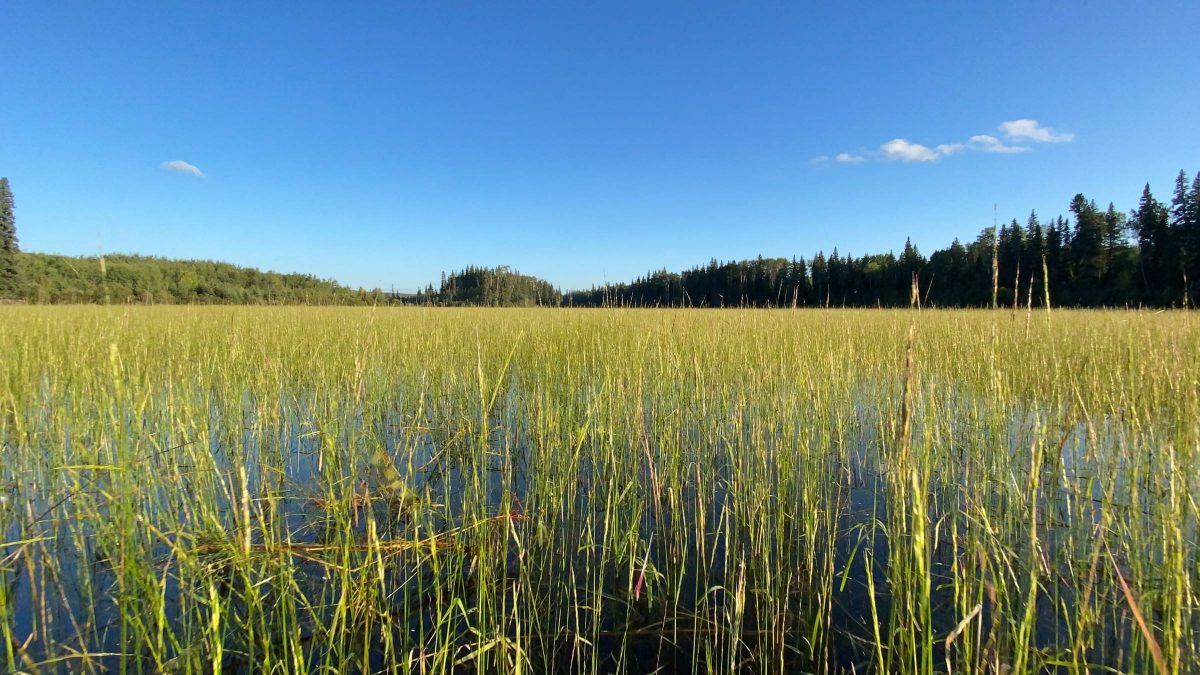
Photo: P. Bhowmik
UM-led research paves way for climate adaptive food systems for Indigenous and marginalized groups
$1.5 million grant to improve access to traditional foods and mitigate climate-related risks to food security, human health and living standards
A diverse team of researchers spanning six continents and more than ten countries has received funding from the Government of Canada to improve access to culturally significant foods for disadvantaged communities around the world.
The award provides $1.5 million through the New Frontiers in Research Fund (International) to study the ecological, health, and cultural values of small fish, wild rice, and other traditional foods. Co-led by UM’s Dr. David Levin, Professor in the Price Faculty of Engineering and Indigenous partners, the international team of researchers from Canada, Germany, India, Norway, South Africa, the United States, Australia, Vanuatu, Morocco and the United Kingdom will use Indigenous and local knowledge to improve access to traditional foods and support climate change mitigating and adaptive food production systems. Including partner contributions, the project funding totals over $6 million. With developed countries supporting developing countries, the project is a model of duty bearers helping to support and empower rightsholders.
The project leverages the work of Myera Group Inc., an Indigenous-led and Manitoba-based company that creates food system technologies with Indigenous communities. The company’s innovative technology and relationships with Indigenous communities will be used to apply Indigenous circular bio-economy strategies to fish farming, wild rice and other traditional medicinal foods to directly meet the needs of vulnerable groups.
“Rediscovering Indigenous food systems is vital for combating climate change and alleviating pressures on our healthcare system,” said Bruce Hardy, CEO of Myera Group. “By embracing these traditional practices, we can also ensure that our youth have access to equitable career opportunities that are culturally restorative, preserving heritage while promoting sustainability and well-being.”
“This visionary project will reimagine food systems and mobilize the rights of systemically disadvantaged people worldwide for climate change adaptation and social justice,” said Dr. Mario Pinto, Vice President (Research and International). “By collaborating with Myera Group, Bruce Hardy and researchers from across the globe, it will chart the course towards building a resilient network of community-based food production systems with opportunities for large-scale commercial application and economic prosperity.”
Changes to food systems have threatened traditional food and income sources
Complex factors including the increase in low cost, highly processed foods are disrupting the food systems of Indigenous populations and small-scale producers, resulting in increased rates of poverty, undernutrition, and malnutrition. Displacement of Indigenous Peoples and other disadvantaged groups to marginal lands has increased their susceptibility to increasingly extreme climate change events, such as droughts, flooding, and heat waves. Marginalization, further, has led to greater risks of economic and gender-based exploitation, impoverishment, and food insecurity.
Indigenous Peoples and small-scale food producers have a deep understanding of food security, sustainable diets, and production systems derived from place-based knowledge and livelihoods spanning thousands of years. Project researchers will collaborate with Indigenous and local Knowledge Keepers to enhance the food and nutrition security, access, and other human rights of vulnerable populations in ways that promise to reduce emissions from food production systems.
For example, the project leverages Myera’s Integrated Multi-Trophic Ecosystem (IMTE), which offers a unique approach to sustainable aquatic food production. IMTE imitates a natural ecosystem by amalgamating the farming of varied, compatible species from different levels of the food chain. It also takes the byproducts of one aquatic species and repurposes them as fertiliser or food for another. By converting these byproducts from aquatic species into harvestable crops, the approach increases environmental and economic sustainability in vulnerable communities, reducing waste while increasing food security.
Diverse research team aims to improve human rights and social justice
The research team brings expertise in agronomy, anthropology, biology, biosystems engineering, economics, geography, international human rights law, and nutritional science. The project’s interdisciplinary approach to individual and community health recognizes the intersection of financial, environmental, logistical, and social factors that influence community health and well-being.
Other UM collaborators include Az Klymiuk, Assistant Professor, Biological Sciences, Cyrus Shafai, Professor, Electrical and Computer Engineering, Derek Johnson, Professor, Department of Anthropology, Dylan MacKay, Assistant Professor, Department of Food and Human Nutritional Sciences, Nathan Derejko, Assistant Professor, Faculty of Law, Rotimi Aluko, Professor, Food and Human Nutritional Sciences, Stephane McLachlan, Professor, Department of Environment and Geography, Trust Beta, Professor, Food and Human Nutritional Sciences and Zahra Kazem Moussavi, Professor, Electrical and Computer Engineering.
The New Frontiers in Research Fund supports world-leading interdisciplinary, international, high-risk / high-reward, transformative and rapid response Canadian-led research. The international stream enhances opportunities for Canadian researchers to partner on international projects. For more information, visit the Government of Canada website.
Research at the University of Manitoba is partially supported by funding from the Government of Canada Research Support Fund.






